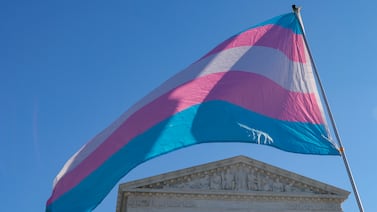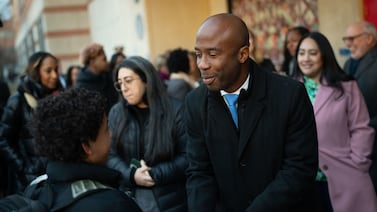Shelby County Schools officials made a case to county leaders Wednesday for more education money in response to the coronavirus pandemic.
During a Shelby County Commission committee meeting held via video conferencing, school officials doubled down on their funding requests, asking for $21 million more for school operations next year and $65 million more for capital needs — more than double their initial request a few weeks ago. The additional operating dollars are on top of the $478 million baseline amount county government must continue providing for education spending in future years under a state requirement known as maintenance of effort.
The county commission is the funding body for all Shelby County public school districts.
“We’re facing the new normal and we need more resources in order to ensure the safety of our students to really maximize on all instructional time,” said Superintendent Joris Ray.
Ray said the district’s educational priorities include literacy and equity, such as increasing access to Advanced Placement classes, gifted classes, and ACT prep in schools that have historically lacked these offerings.
But now, he said, the district has pivoted to address pandemic-related needs such as increasing safety measures when school reopens by doing additional cleaning, supplying masks for students and teachers, and possibly even checking students’ temperatures as they enter buildings. Officials also are considering the logistics necessary for social distancing, which could involve staggering school days by having different grades come on different days, splitting classrooms where half the class comes in the morning and the other half in the afternoon, and running more bus routes to avoid crowding.
School administrators have been meeting daily to discuss scenarios for how school will look next year. That includes contingencies for what happens if schools don’t reopen in the fall, or open and then close again if coronavirus infections increase.
“That’s why we’re pushing so hard for the digital devices just in case we can’t go back in the fall,” Ray said. “Students need digital devices and at this moment in time it’s not a want, it’s a need, and it’s a right for our students to be able to learn virtually because right now we’re swimming in the unknown.”
Supplying all 94,700 students with laptops or tablets and internet access will cost about $53.5 million, according to district estimates. About $27 million of that is expected to come from the federal Coronavirus Aid, Relief, and Economic Security Act.
Toni Williams, school finance director, said the district had initially been told it would receive $48.6 million in federal COVID relief funding based on its Title I funding for economically disadvantaged students. But she said the state education department has since said the district may only receive $36 million after private school and charter school allocations are subtracted. District officials will meet Monday with the state to discuss the emergency funds.
Most of the maintenance projects Shelby County Schools is planning for next school year involve updating heating and air systems, adding gymnasiums, repairing roofs, and doing design work for a new high school in the Frayser area. The work is part of the $500 million in deferred maintenance the Memphis district has identified for its 150 buildings.
Earlier this week, school board members approved a combined $1.4 billion budget that includes:
- $14 million for curriculum and textbooks
- $45.9 million for pre-K, Head Start, and early learning programs
- $19.5 million for career and technical education
- $8.9 million for school improvement initiatives such as Innovation Zone schools, which have additional financial support and extended school days to help turn around underperforming schools
- $9 million the CLUE gifted program
- $6 million for 1% teacher raises
Shelby County commissioners will decide whether to approve the additional funding requests in coming weeks before the start of the new fiscal year July 1.






